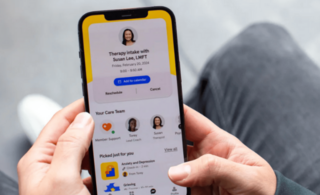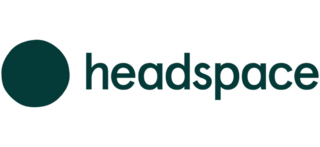Portfolio News| January 2024
Headspace Begins Rolling Out All-in-One Mental Health Offering Following 2021 Ginger Merger
Article written by Jessica Bursztynsky via Fast Company
Headspace has started to integrate its mindfulness content and its clinical mental health services into one platform. The end-to-end mental health support offering comes about two-and-a-half years after the platform merged with Ginger, an on-demand mental health service.
Starting this month, Headspace’s enterprise customers who have signed up for its fully integrated offering can give employees access to Headspace’s mental health and mindfulness content, one-on-one mental health coaching, therapy, psychiatry, and work-life services, all in the core Headspace platform. Prior to this, customers had to use one app for the original Headspace content and another for clinical care. Starting with its enterprise customers will allow the company to find its proof points before it brings the integrated platform directly to consumers later this year.
“What we want to do here is create the brand that people think about when they think mental health,” Headspace CEO Russell Glass tells Fast Company. “The first thing that they do is to go to Headspace and start to engage and allow us to help them navigate the mental health system, help them get to the right level of care.”
Blending the two platforms has long been Headspace’s goal, hoping to create a more holistic, integrated service amid the national mental health crisis. A user may be seeking out therapy, but their clinical assessment scores indicate they could see improvement from coaching before needing to seek further care. Or, a person may not be feeling better with consistent coaching and could benefit from a therapist and psychiatrist through the platform.
“We want to help them understand what their needs are because most people don’t really know what they need,” Glass says. “They just know they’re not feeling well.”
Headspace was one of the tech platforms that shot off in popularity during the early days of the pandemic. People were stuck at home for weeks on end, dealing with an unprecedented global crisis, and the app promised a bit of relief.
But Leslie Witt, chief product and design officer, says consumers were coming to the platform seeking more mental health resources than Headspace could provide.
“We lacked the tools and resources to be able to connect them to the health care that they in many cases needed,” Witt says, adding the merger with Ginger allowed that goal to become possible. “And so as we bring all of the services together . . . it really presents that core opportunity to deliver on the promise that in many ways consumers already saw, which was to come into this space, to be able to give a very brief understanding of who I am and what I need and how I’m doing, and for us then to connect them directly to that right level of care.”
Article written by Jessica Bursztynsky, Staff Writer for Fast Company
Content contained in this blog post is not intended to and does not constitute investment advice. Your use of the information in this blog post and materials linked is at your own risk. Spectrum Equity does not make any guarantee or other promise as to any results that may be obtained from using this content. No one should make any investment decision without first consulting his or her own financial advisor and conducting his or her own research and due diligence. Past performance is not indicative of future results, and there is a possibility of loss in connection with an investment in any Spectrum Fund. To the maximum extent permitted by law, Spectrum Equity disclaims any and all liability in the event any information, commentary, analysis, and/or opinions prove to be inaccurate, incomplete or unreliable, or result in any investment or other losses. The specific companies identified above does not represent all of Spectrum’s investments, and no assumptions should be made that any investments identified were or will be profitable.

